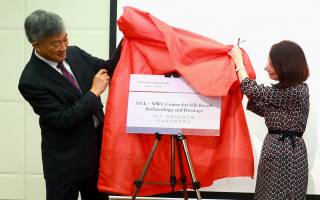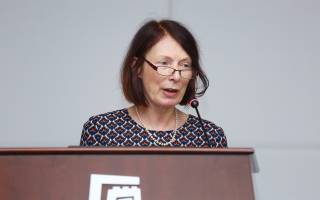
The UCL Institute of Archaeology and Northwest University (NWU) launched a joint International Research Centre for Silk Roads Archaeology & Heritage at a special event in China in April 2018.
Both institutions have a long history of Silk Roads archaeology and research. In 1938, NWU scientifically excavated the tomb of Zhang Qian, and from then on archaeologists there have carried out investigative research and excavation along the Silk Roads. Silk Roads archaeology, preservation technologies, and cultural heritage management are now major research directions for NWU.

UCL Institute of Archaeology has been working in Western and Central Asia for many years, for example, the long-running research project at great Silk Roads city of Merv in Turkmenistan. Work has also been undertaken for the UNESCO serial nomination of the Silk Roads, including the ICOMOS thematic study of the Silk Roads, which created the platform for the current trans-national nominations.

Alongside the Centre, NWU and UCL will establish a new peer review Open Access Silk Roads Journal, with a shared Editorial Board.
Teaching will also benefit, with the development of an MA module on Silk Roads Archaeology, to complement the Institute's existing MA programme in the Archaeology & Heritage of Asia. NWU and UCL are sharing syllabus ideas and course development. The delivery of some teaching at NWU, and student exchange schemes, are envisaged.
It is hoped that the Silk Roads Research Centre will help to promote the large-scale analysis of political, social and economic relationships along the Silk Roads.
 Close
Close

